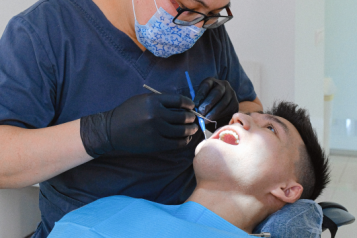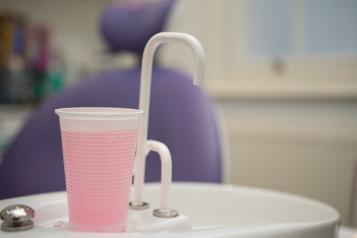Our national partners Healthwatch England received a briefing yesterday from the Department of Health and Social Care about the plans, which along with the official press release, which informs the Q&A below.
What is the aim of the programme?
The Department of Health and Social Care and Department for Education, want up to 600,000 children aged 3-5 years in the most deprived areas of England to be taught positive habits through supervised toothbrushing delivered by staff in early years settings – such as nurseries and registered childminders - or primary schools.
More than 23 million toothbrushes and toothpaste will also be given away free to children in a deal the government has struck with Colgate. The company has also been asked to deliver a joint public facing children’s oral health campaign with the NHS.
How will supervised toothbrushing be funded?
The DHSC told Healthwatch £11m of new funding has been found to allocate to local authorities as extra public health funding from April. Some councils already fund these schemes or had been calling for funding certainty before rolling them out. Guidance will be issued soon to councils on the new funding.
How is the government defining ‘deprived areas’?
The government wants to reach 3-5-year-olds living in the top 20% deprived areas of England, (those with an Index of Multiple Deprivation (IMD) ranking of 1 and 2). However, education settings will be expected to adopt a whole-school or nursery approach, rather than singling out individual children for support.
Recent new figures showed that children living in deprived areas are 3.5 times more likely to need to go to hospital to get decayed teeth removed than those living in well-off areas.
Is the scheme mandatory for schools and nurseries?
No. It is voluntary. The Local Government Association has welcomed the scheme, but some teaching bodies or unions have raised concerns about staff not having the capacity to deliver this extra staff.
Is supervised toothbrushing evidence-based?
Yes – it has already been successfully rolled out in Scotland and Wales, according to the National Institute for Health and Care Research. The government believes improvements could be seen within two to three years after supervised toothbrushing is launched. For every £1 spent on the scheme, £3 could be saved on future treatment costs and hospital admissions – potentially £34m over the next five years.
What does Healthwatch England think about the scheme?
Overall, Healthwatch have welcomed it but only as one of many solutions needed for NHS dentistry.
In Healthwatch England's discussion with the DHSC they also raised concerns that cash-strapped councils may not prioritise spending this extra funding on its intended purpose. They also said that families needed to be aware that cheaper brands of toothpaste, with the same level of fluoride, were available aside from those sold by Colgate.



